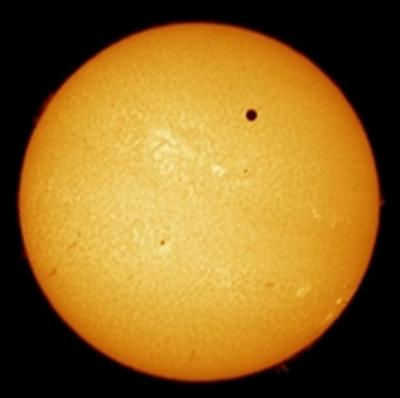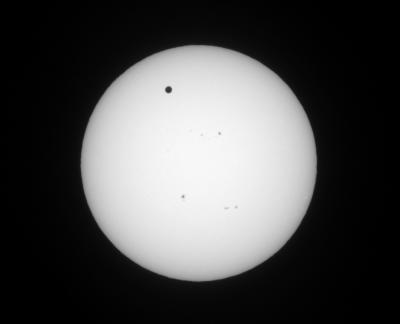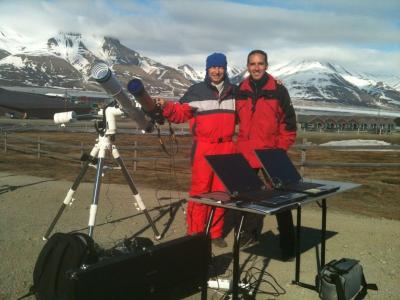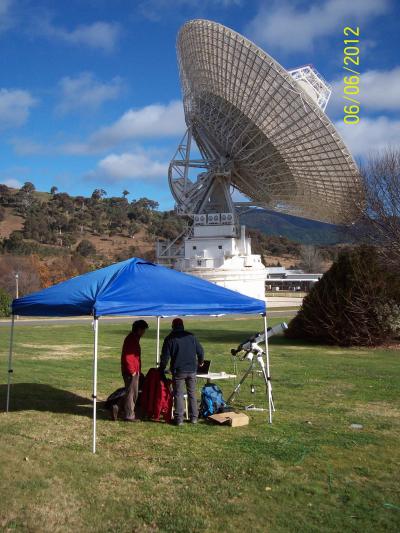The recent Venus transit is a one-in-a-lifetime experience that, unfortunately, was not enjoyable from Madrid. A few members of the ESAC community travelled to the Svalbard islands, in the Artic, and to Canberra, in Australia, to witness the event and show it to the world.
Both teams had the same equipment, two telescopes -one solar, one optical- equipped with cameras. They had the same mission as well: send as many images as possible to the ESA web in real time, to feed the public interest in Venus and the transit.

Venus Transit as seen in H_alpha from the Town of Longyearbyen on the Svalbard Islands

Venus Transit from Canberra near CDSCC station |
The 2012 transit of Venus began at around 22h UTC on 5 June 2012, and finished just before 05h UTC on 6 June. The actual times differ from one location in the planet to another, due to parallax. The previous one took place on 8 June 2004 (preceded by the pair of appearances on 9 December 1874 and 6 December 1882), and the next one will occur on 10–11 December 2117. So it was certainly now or never.
Miguel Pérez Ayúcar, from the Venus Express Science Operations team at ESAC, described the experience in these terms: "During the hours of the transit we were delighted by the slow, delicate, gracious passage of Venus in front of the Sun. A perfect black circle, containing a world in it, moving in front of its looming parent star. We wondered how small and fragile we must look from afar, how silent we wander through space. And how thankful we were to witness it”.

CESAR Astronomers observing Venus Transit in the Svalbard Islands
Manuel Castillo-Fraile and Miguel Sánchez Portal, from the SMOS and Herschel Science Operation Teams, chose a completely different direction. With the support of our partners in NASA CDSCC, they could observe the transit from the Deep Space Station in Canberra, in Australia.

CESAR Astronomers observing Venus Transit in Canberra, near CDSCC station
As a curiosity other CESAR teams try to see this event during the sunrise in Spain (with only 15 minutes of observation).

Venus transit view from Ibiza island. David Cabezas (CESAR)
Results
See result section